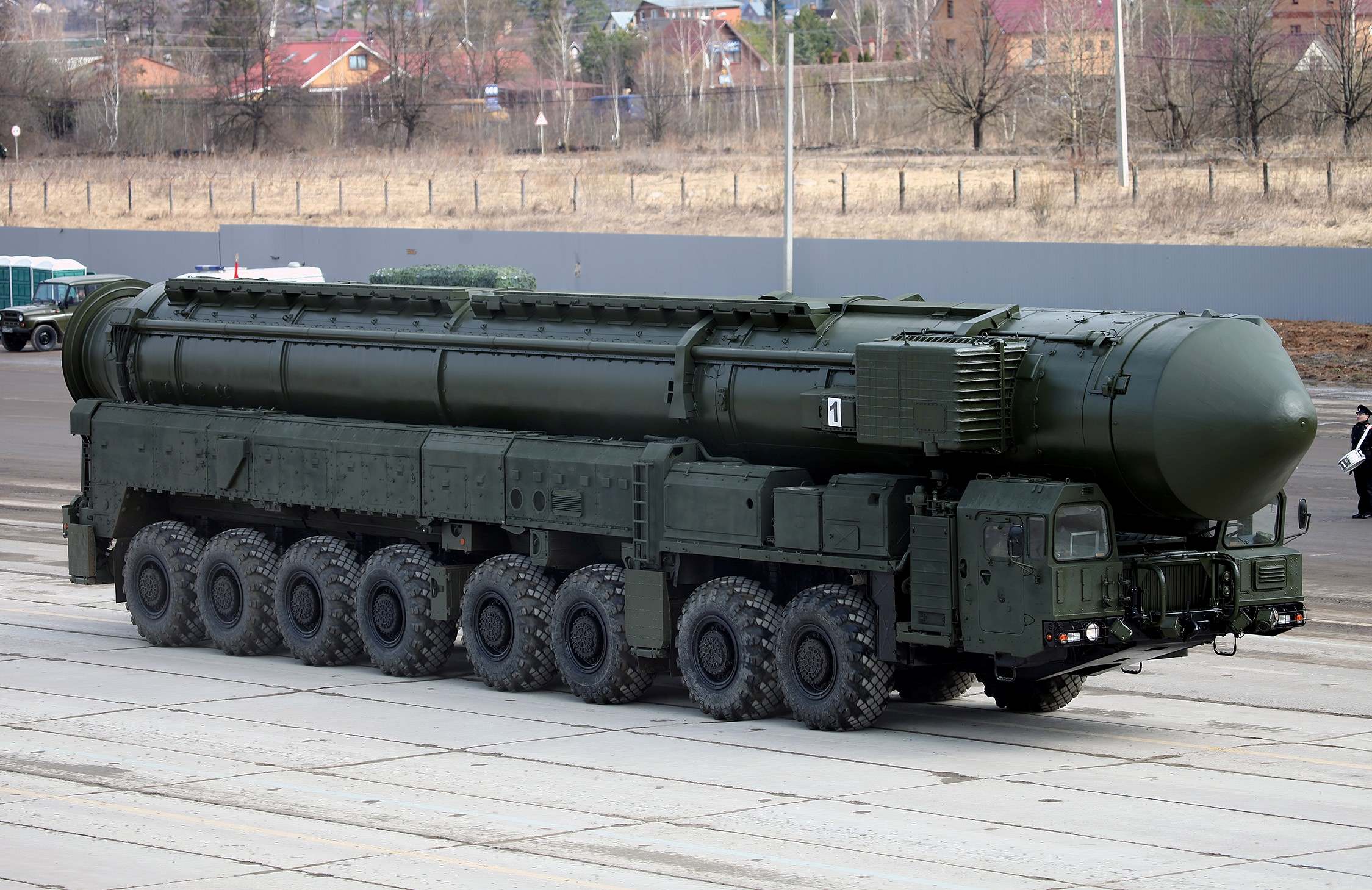
Nuclear weapons have played a significant role in shaping the modern world, both politically and militarily. From the devastating power they possess to the intricate scientific processes behind their creation, nuclear weapons are a subject of intense curiosity and concern. In this article, we will delve into the world of nuclear weapons and explore 18 fascinating facts that shed light on their history, capabilities, and global implications. From the first atomic bomb to nuclear disarmament efforts, this exploration will provide a comprehensive understanding of the complex and controversial nature of these weapons. So, fasten your seatbelts as we journey into the realm of nuclear weapons and uncover the intriguing facts that lie beneath the surface.
Key Takeaways:
- Nuclear weapons were first made during World War II and have immense destructive power. They can have long-lasting effects on the environment and pose a constant threat to global security.
- There are currently nine countries with nuclear weapons, and international efforts aim to prevent their spread. The use of nuclear weapons is governed by strict international laws to minimize unnecessary human suffering.
Nuclear weapons were first developed during World War II.
During the Manhattan Project in the 1940s, scientists successfully created the first atomic bombs, marking the beginning of the nuclear era.
There are currently nine countries known to possess nuclear weapons.
These countries are the United States, Russia, the United Kingdom, France, China, India, Pakistan, Israel, and North Korea.
Nuclear weapons have immense destructive power.
A single nuclear bomb can release an explosion equivalent to thousands of tons of TNT, causing widespread devastation and loss of life.
The largest nuclear weapon ever tested was the Tsar Bomba.
Developed by the Soviet Union, this bomb had an estimated yield of 50 megatons, making it the most powerful nuclear weapon ever detonated.
Nuclear weapons can have long-lasting effects on the environment.
The radiation released by nuclear explosions can contaminate land, water, and air, causing health issues and ecological damage for years to come.
There have been instances of accidental nuclear weapon releases.
One notable example is the 1966 Palomares incident, in which a U.S. B-52 bomber collided with a tanker aircraft, resulting in the release of four nuclear bombs over Spain.
The Comprehensive Nuclear-Test-Ban Treaty aims to ban all nuclear testing.
Although not yet fully ratified by all countries, the treaty seeks to prevent the development and testing of new nuclear weapons.
Nuclear weapons have profound implications for international relations.
The possession and use of nuclear weapons can greatly influence negotiations, conflicts, and alliances between nations.
The dropping of atomic bombs on Hiroshima and Nagasaki marked the only use of nuclear weapons in warfare.
These devastating bombings by the United States during World War II led to the surrender of Japan and the end of the war.
Nuclear weapons have been the subject of arms control treaties.
Agreements such as the Treaty on the Non-Proliferation of Nuclear Weapons aim to limit the spread and possession of nuclear weapons.
The detonation of a nuclear bomb can create a massive fireball.
The intense heat generated by an explosion can cause everything in its vicinity to ignite, leading to widespread firestorms.
Nuclear weapons can have psychological impacts as well.
The fear and anxiety associated with the potential use of nuclear weapons can have long-lasting effects on individuals and societies.
The Cold War between the United States and the Soviet Union involved a nuclear arms race.
Both superpowers developed and stockpiled large numbers of nuclear weapons, focusing on deterrence rather than actual use.
Nuclear weapons can potentially be used as a deterrent.
Some argue that the possession of nuclear weapons by a country can discourage potential adversaries from attacking, known as the theory of mutually assured destruction.
The use of nuclear weapons is governed by international law.
Under the principles of humanitarian law, the use of nuclear weapons is subject to strict conditions, including the principle of proportionality and avoiding unnecessary human suffering.
The testing of nuclear weapons has significantly reduced since the 1990s.
Many countries have pledged to observe moratoriums on nuclear testing, reducing the overall number of tests conducted worldwide.
There is ongoing concern regarding the proliferation of nuclear weapons.
The international community remains vigilant in preventing the spread of nuclear weapons to additional countries or non-state actors.
Nuclear weapons pose a constant threat to global security.
Due to their potential for mass destruction, efforts to control and limit the use and possession of nuclear weapons remain high on the international agenda.
Conclusion
In conclusion, nuclear weapons remain a highly controversial and complex topic. As evidenced by the 18 facts discussed above, these weapons have a significant impact on global security, geopolitics, and the environment. While some argue for their deterrent effect and the need for a strong nuclear arsenal, others underline the catastrophic risks associated with their use.
It is crucial to continue open and honest dialogue around nuclear weapons, promoting arms control, disarmament, and non-proliferation efforts. With the goal of creating a safer and more peaceful world, it is imperative that international cooperation and diplomatic efforts are prioritized in addressing the challenges posed by nuclear weapons.
As we strive for a world free of nuclear weapons, it is important to stay informed, engage in debate, and support initiatives that promote disarmament and non-proliferation. By understanding the facts and consequences associated with nuclear weapons, we can work towards a more secure and sustainable future.
FAQs
1. What is a nuclear weapon? A nuclear weapon is an explosive device that derives its destructive force from nuclear reactions, either fission or fusion.
2. How many countries possess nuclear weapons? Currently, there are nine countries known to possess nuclear weapons: the United States, Russia, the United Kingdom, France, China, India, Pakistan, Israel, and North Korea.
3. How powerful are nuclear weapons? Nuclear weapons can range in power, with some yielding an explosion equivalent to hundreds of thousands or even millions of tons of TNT.
4. Are nuclear weapons ever used? To date, nuclear weapons have only been used in warfare twice, during the bombings of Hiroshima and Nagasaki in 1945.
5. How do nuclear weapons affect the environment? Nuclear weapons testing and their potential use can result in radioactive contamination, causing long-term damage to ecosystems and human health.
6. Are there efforts to reduce nuclear weapons? Yes, there have been numerous international treaties and agreements aimed at reducing the number of nuclear weapons, such as the Treaty on the Non-Proliferation of Nuclear Weapons (NPT) and the New START treaty.
7. Why do some countries want to possess nuclear weapons? Countries often acquire nuclear weapons for security reasons, as a deterrent against potential threats or as a status symbol among nations.
8. What are the risks of nuclear weapons falling into the wrong hands? The proliferation of nuclear weapons increases the risk of them falling into the hands of non-state actors or rogue states, potentially leading to catastrophic consequences.
9. Can nuclear weapons be legally used? The use of nuclear weapons is governed by international humanitarian law and depends on the circumstances. However, the use of nuclear weapons is generally considered to be unlawful due to their indiscriminate and devastating nature.
10. How can individuals contribute to nuclear disarmament? Individuals can support organizations that advocate for nuclear disarmament, engage in public discourse, and raise awareness about the risks associated with nuclear weapons.
For those captivated by nuclear weapons' destructive capabilities, our website offers even more intriguing content. Delve into tactical nuclear weapons' battlefield applications or explore neutron bombs' unique radiation effects. Dr. Helen Caldicott's tireless advocacy against nuclear proliferation is also chronicled in a fascinating biographical piece.
Was this page helpful?
Our commitment to delivering trustworthy and engaging content is at the heart of what we do. Each fact on our site is contributed by real users like you, bringing a wealth of diverse insights and information. To ensure the highest standards of accuracy and reliability, our dedicated editors meticulously review each submission. This process guarantees that the facts we share are not only fascinating but also credible. Trust in our commitment to quality and authenticity as you explore and learn with us.


